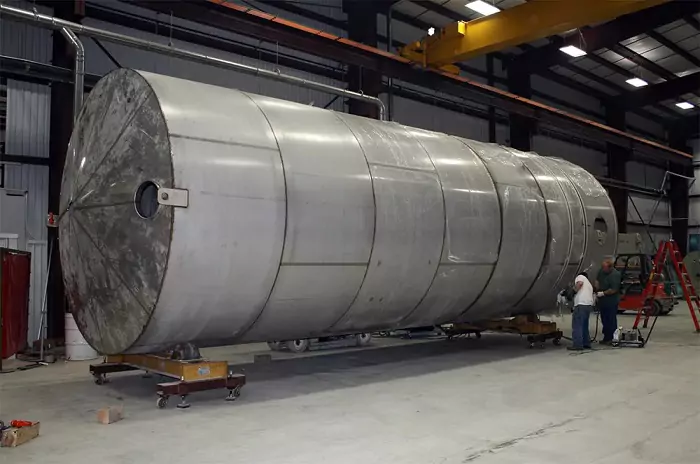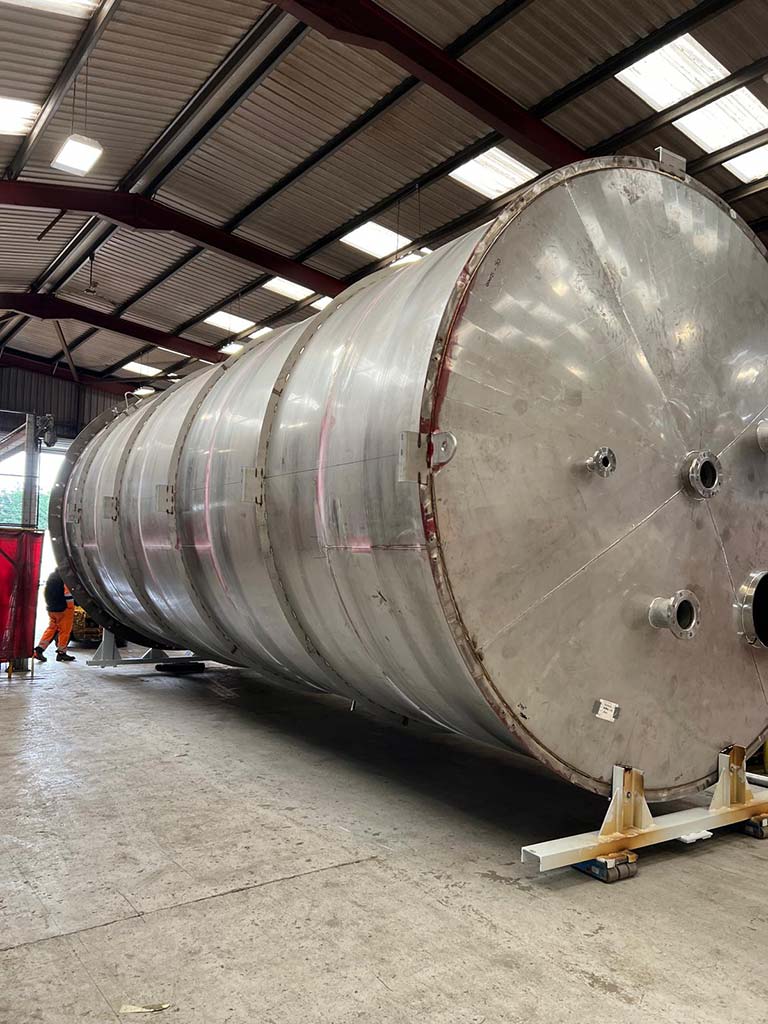In the modern industrial landscape, efficient, durable, and reliable storage solutions are critical for a wide range of applications—from chemical processing and food manufacturing to oil & gas transportation. Among the various options available, heavy-duty stainless steel tanks stand out as a superior choice for industries demanding robustness, longevity, and safety.
This comprehensive guide explores everything you need to know about heavy-duty stainless steel tanks, including their design features, advantages, applications, and how to select the best tank for your needs. Whether you’re an engineer, procurement manager, or business owner, understanding these tanks can optimize your operations and ensure compliance with industry standards.
What Are Heavy-Duty Stainless Steel Tanks?
Heavy-duty stainless steel tanks are large, robust containers designed for the storage, mixing, or transportation of liquids and semi-liquids in demanding industrial environments. They are constructed from high-grade stainless steel, typically 304 or 316 alloys, offering excellent corrosion resistance, strength, and hygiene.
These tanks are engineered to withstand extreme conditions—such as high pressure, temperature fluctuations, and chemical exposure—making them suitable for heavy-duty applications across various sectors including:
- Chemical industries
- Food and beverage manufacturing
- Oil and gas
- Pharmaceuticals
- Water treatment facilities
Key Features of Heavy-Duty Stainless Steel Tanks

- Durability & Strength: Built with reinforced walls and sturdy structural supports, capable of withstanding rough handling and harsh environments.
- Corrosion Resistance: Made from high-grade stainless steel, resistant to rust, corrosion, and chemical degradation.
- Hygienic Design: Smooth surfaces, rounded corners, and sanitary fittings facilitate easy cleaning and maintenance.
- Customizable Options: Available in various sizes, configurations, and with specialized features such as insulation, agitation, heating, or cooling systems. Container shelters
Why Choose Heavy-Duty Stainless Steel Tanks?
Selecting the right storage tank is crucial for operational efficiency, safety, and compliance. Heavy-duty stainless steel tanks offer several advantages that make them an ideal choice for demanding industrial applications:
1. Exceptional Corrosion Resistance
Industries like chemical processing or food manufacturing involve handling corrosive substances. The high-grade stainless steel resists rust and corrosion, ensuring a longer lifespan and reducing maintenance costs.
2. Superior Strength and Structural Integrity
Heavy-duty tanks are designed to withstand physical stresses such as impacts, pressure variations, and thermal expansions, minimizing the risk of leaks or failures.
3. Hygiene and Food Safety
For food and beverage applications, stainless steel provides a non-porous surface that prevents bacterial growth, facilitating easy cleaning and sanitation.
4. Temperature Tolerance
These tanks can operate effectively across a wide temperature range, making them suitable for processes involving heating or cooling.
5. Sustainability and Recyclability
Stainless steel is 100% recyclable, aligning with sustainable industrial practices. Heavy-duty tanks are thus environmentally friendly and contribute to eco-conscious operations.
6. Versatility and Customization
From size and shape to internal features, heavy-duty stainless steel tanks can be tailored to meet specific operational needs.
Applications of Heavy-Duty Stainless Steel Tanks
Heavy-duty stainless steel tanks are versatile and find utility in numerous industries. Here’s an overview of common applications:
1. Chemical Industry
Handling aggressive chemicals, acids, or bases requires tanks that resist corrosion and chemical reactions. Heavy-duty stainless steel tanks provide a safe and durable solution for storing and mixing chemicals.
2. Food & Beverage Processing
Maintaining hygiene standards is critical in food production. Stainless steel tanks are used for fermentation, storage, and mixing of ingredients like dairy, beverages, sauces, and more.
3. Oil & Gas Sector
Transporting and storing crude oil, refined fuels, or other hydrocarbons necessitates tanks that can endure high pressure and corrosive environments.
4. Pharmaceuticals
High purity and cleanliness standards demand stainless steel storage solutions for pharmaceuticals, vaccines, and other sensitive materials.
5. Water Treatment & Storage
Heavy-duty tanks are used for storing potable water, wastewater, or chemicals involved in water treatment processes.
6. Marine & Transportation
In intermodal shipping and marine operations, stainless steel tanks are employed for transporting liquids across long distances securely.
Designing Heavy-Duty Stainless Steel Tanks: Key Considerations
To maximize efficiency and lifespan, designing a heavy-duty stainless steel tank involves various technical considerations:
1. Material Selection
Choosing between 304 and 316 stainless steel depends on the application:
- Type 304 Stainless Steel: Suitable for general-purpose storage, offering good corrosion resistance.
- Type 316 Stainless Steel: Contains molybdenum for enhanced corrosion resistance, ideal for chemical and marine environments.
2. Capacity & Size
Determine the volume requirements based on operational needs, space constraints, and transportation standards.
3. Structural Design
Factors such as wall thickness, reinforcement, and support structures influence durability and safety.
4. Internal Features
Options like agitation systems, heating or cooling jackets, insulation, and sight glasses improve functionality.
5. Safety & Compliance
Designs must adhere to industry standards such as ASME, API, and ISO for pressure vessels and storage tanks.
6. Mobility & Mounting
Decide whether the tank will be stationary or mobile (e.g., mounted on trailers), which affects design specifications.
Benefits of Using Equip Intermodal Heavy-Duty Stainless Steel Tanks
As reflected on Equip Intermodal, a leading provider of industrial tank solutions, choosing the right manufacturer ensures quality, reliability, and compliance. Here are some benefits of sourcing heavy-duty stainless steel tanks from reputable suppliers like Equip Intermodal:
- Customized Solutions: Tailor-made tanks that meet specific operational requirements.
- High-Quality Materials: Use of premium stainless steel alloys ensures longevity.
- Advanced Manufacturing: State-of-the-art fabrication processes for precision and durability.
- Comprehensive Support: Design consultation, installation, maintenance, and after-sales support.
- Compliance & Certification: Tanks built to meet international standards for safety and quality.
How to Select the Right Heavy-Duty Stainless Steel Tank
Choosing the perfect tank involves evaluating multiple factors:
1. Application & Content Compatibility
Ensure the tank material and design suit the specific liquids or substances being stored or transported.
2. Capacity & Dimensions
Match tank size to your volume requirements while considering available space and transportation needs.
3. Environmental Conditions
Account for temperature ranges, exposure to chemicals, and external weather conditions.
4. Regulatory Standards
Verify that the tank design complies with relevant industry standards and certifications.
5. Budget & Cost-Efficiency
Balance initial investment with long-term durability and maintenance costs.
6. Manufacturer Reputation
Partner with experienced manufacturers like Equip Intermodal to ensure quality and reliability.
Maintenance & Care for Heavy-Duty Stainless Steel Tanks
Proper maintenance extends the lifespan and ensures safety and performance:
- Regular Inspection: Check for signs of corrosion, leaks, or structural damage.
- Cleaning: Use suitable cleaning agents to prevent contamination or buildup.
- Protective Coatings: Apply protective linings or coatings if necessary.
- Pressure Testing: Conduct periodic tests to verify integrity.
- Record Keeping: Maintain detailed logs for maintenance, inspections, and repairs.
Future Trends in Heavy-Duty Stainless Steel Tank Manufacturing
As industries evolve, so do storage solutions. Emerging trends include:
- Smart Tanks: Integration of sensors for real-time monitoring of pressure, temperature, and contents.
- Modular Designs: Prefabricated modular tanks for quick installation and scalability.
- Enhanced Sustainability: Use of eco-friendly manufacturing processes and recyclable materials.
- Automation & IoT: Incorporating automation for filling, cleaning, and maintenance processes.
Conclusion
Heavy-duty stainless steel tanks are indispensable assets for industries requiring resilient, hygienic, and versatile storage and transportation solutions. Their superior corrosion resistance, structural integrity, and customization options make them a preferred choice for demanding applications.
Partnering with reputable manufacturers like Equip Intermodal ensures you get high-quality, compliant, and tailored tank solutions that meet your operational needs. Whether you operate in chemicals, food processing, oil & gas, or pharmaceuticals, investing in heavy-duty stainless steel tanks can significantly enhance efficiency, safety, and sustainability.
Take Action Today
If you’re considering heavy-duty stainless steel tanks for your business, start by assessing your specific needs, visiting trusted suppliers like Equip Intermodal, and consulting with industry experts. Proper planning and quality equipment will ensure smooth operations and long-term success.


